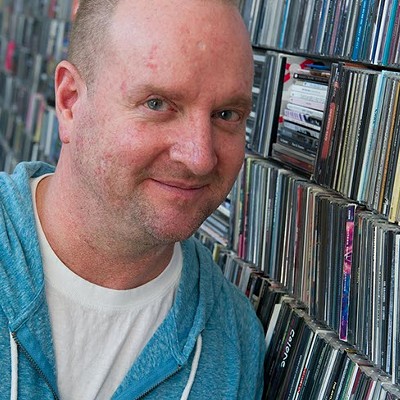But I remembered nearly everything I'd read five years ago in "Freakonomics" when I watched its lively documentary adaptation, now on DVD.
The invented word concerns the study of human behavior, primarily via incentives, and if it were offered as a real degree program in the hallowed halls of higher ed, I might even go for a Ph.D.
If readers wonder how such a nonfiction work could be made into a movie, the answer is simpler than they'd think: Divvy up its chapters among several noted documentarians, and let brief talking-head pieces with co-authors Steven D. Levitt and Stephen J. Dubner serve as the caulk between the cracks. While not entirely seamless, the film is solid, both as social science and pure entertainment.
Morgan Spurlock ("Super Size Me") employes his skeptic Everyman approach to look at how popular names venture from the upper class to the lower class as the years pass, and how names can affect our chances for success. "Jesus Camp" co-directors Heidi Ewing and Rachel Grady look at whether an experiment to monetarily reward academically challenged ninth graders for improving grades worked.
Those two are the best of the four meaty segments, but the other half is nothing to sneeze at. Eugene Jarecki's piece on how a lowered crime rate was tied to the Roe v. Wade decision suffers only from the odd choice of having Melvin Van Peebles narrate, while Alex Gibney — who recently delved into cheating with his excellent Elliot Spitzer doc, "Client 9" — does the same here, but to the corrupt world of sumo wrestling. His part just doesn't know when to say when.
Seth Gordon, who gave us the fabulous "King of Kong" doc a few years back, handles the intro, outro and other transitions, in which Dubner/Leavitt further tackle other stories from their book, from selfish Realtors and dishonest teachers to how the law of "cause and effect" is often misunderstood, such as when ice cream was blamed for the polio outbreak. (Be sure to peruse the DVD's special features for more of their stories, including the experiment of the blind bagel shop owner and a hospital's hand-washing initiative.)
All of this is intelligent stuff, but breezily told without dumbing itself down to the average viewer. Given its poor box office, I'm guessing the book's sequel, "Superfreakonomics," won't soon receive the same treatment, but I sure wish it would.
This is a terrific documentary for water-cooler conversation. Hell, you might actually learn something. Like why it may not be in your child’s best interest to name her Shaniqua. —Rod Lott










